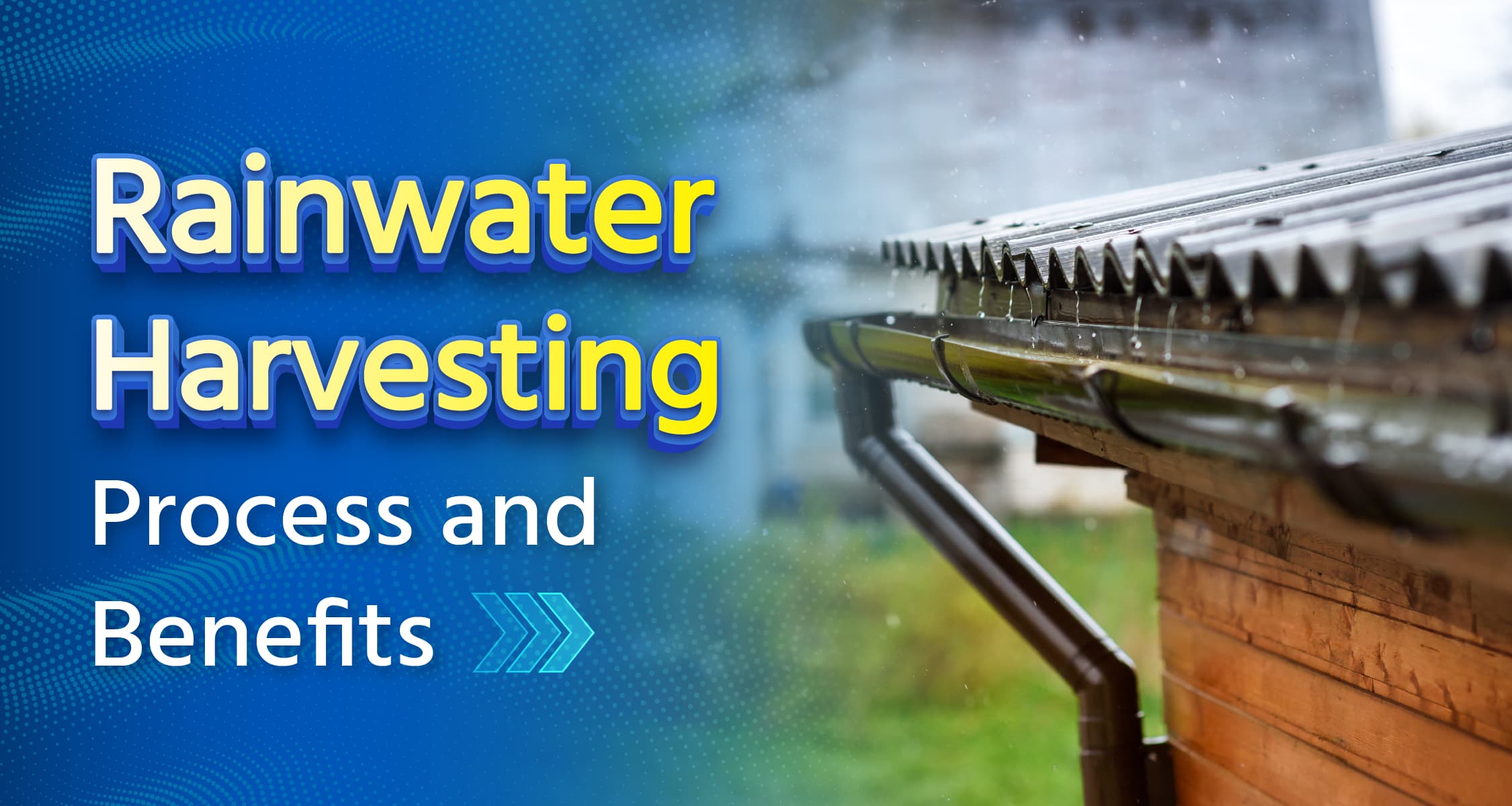Rainwater Harvesting: Process and Benefits

The water level on Earth is gradually decreasing. In many regions of our country, the situation of floods arises due to excessive rainfall. On the other hand, in many areas, we have to struggle for every drop of water due to severe drought. In such a situation, rainwater harvesting is a better option to solve the problem of water scarcity. It can also be very beneficial even for irrigation needs in cultivation. Now the question arises, what exactly is rainwater harvesting and what are its benefits? If you are not familiar with the answers to these questions yet, then read this post carefully. From here, we will obtain some important information related to rainwater harvesting. We will also go through its various benefits for the agricultural landscape.
What is Rainwater Harvesting?
- Rainwater harvesting is a method of conserving rainwater. Stored rainwater can be used for irrigation when there is a shortage of water or as needed.
Usage of Rainwater in Agriculture
- In situations where there is not enough water for irrigation or during drought conditions, we can irrigate plants using harvested rainwater.
- Using rainwater for crop irrigation reduces expenses incurred due to irrigational purposes.
- Besides crop irrigation, we can also use harvested rainwater for animals' drinking needs provided it is clean and drinkable.
- Rainwater can be used for bathing animals as well.
Some Additional Benefits of Conserving Rainwater
- Rainwater can be utilized in commercial activities.
- Conserving rainwater enables various household tasks like cleaning, bathing, laundry, and dishwashing.
- Sending rainwater into the ground can replenish groundwater levels.
- Using rainwater helps in saving the supply of water or groundwater.
How to do Rainwater Harvesting?
Conserving water for rainwater harvesting is crucial for irrigation. There are several methods to preserve rainwater:
- Directly into the Ground: Rainwater is directed into the ground through a pit, replenishing groundwater reserves.
- Creating Recharge Trenches: Walls are constructed in large areas to form recharge trenches. Rainwater collected here percolates into the ground, aiding in maintaining the water table.
- Collecting Water in Wells: Rainwater from rooftops is directed through pipes into wells, which can also contribute to raising the water level.
- Collecting Water in Tube Wells: Pipes are installed from rooftops to tube wells. Filtering is essential in these pipes. Rainwater is collected in tube wells from rooftops during rainfall.
- Collecting Water in Tanks: Tanks are built according to needs, collecting rainwater for long-term storage. Water from these tanks can be used as needed, making it the easiest method for rainwater harvesting.
By conserving rainwater in this way, we can use it for irrigation when necessary, benefiting plants and various crops.
Have you ever stored rainwater to irrigate crops? Share your answers and experiences with us in the comments. For more such information, follow the 'Desi Jugaad' channel now. Don't forget to like and share this post to spread this information to other fellow farmers.
Frequently Asked Questions (FAQs)
Q: What is rainwater harvesting?
A: Rainwater harvesting involves collecting and storing rainwater, which is then utilized for irrigation when needed. Through this process substantial amount of water can be stored and used for irrigational purposes and other personal uses.
Q: How to collect rainwater?
A: Rainwater can be collected in various ways. It can be harvested using tanks installed on rooftops or through pipes underground. Additionally, wells, tube wells, and constructing ponds near fields are also effective methods for rainwater collection.
Q: What are the benefits of rainwater harvesting?
A: Rainwater harvesting offers numerous benefits. In water-scarce regions, it can be used for irrigating crops, thus conserving water. Besides irrigation, it can also be utilized for household chores and other personal uses, promoting sustainable use of rainwater.
Q: How clean is rainwater?
A: As it is free from chemicals, rainwater is often considered the purest form of water. However, its purity can be affected by various factors such as air pollution, dust, and other contaminants present in the environment. Therefore, ensuring the purity of harvested rainwater is crucial through proper collection and storage methods.
जारी रखने के लिए कृपया लॉगिन करें

फसल चिकित्सक से मुफ़्त सलाह पाएँ
